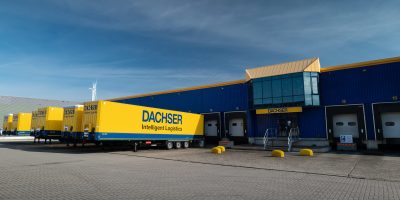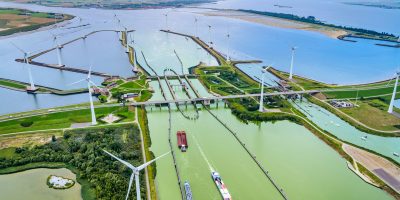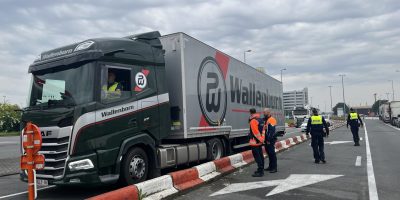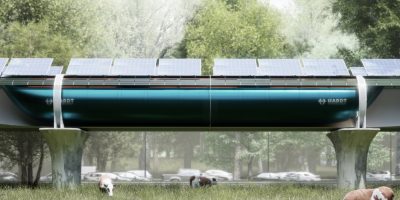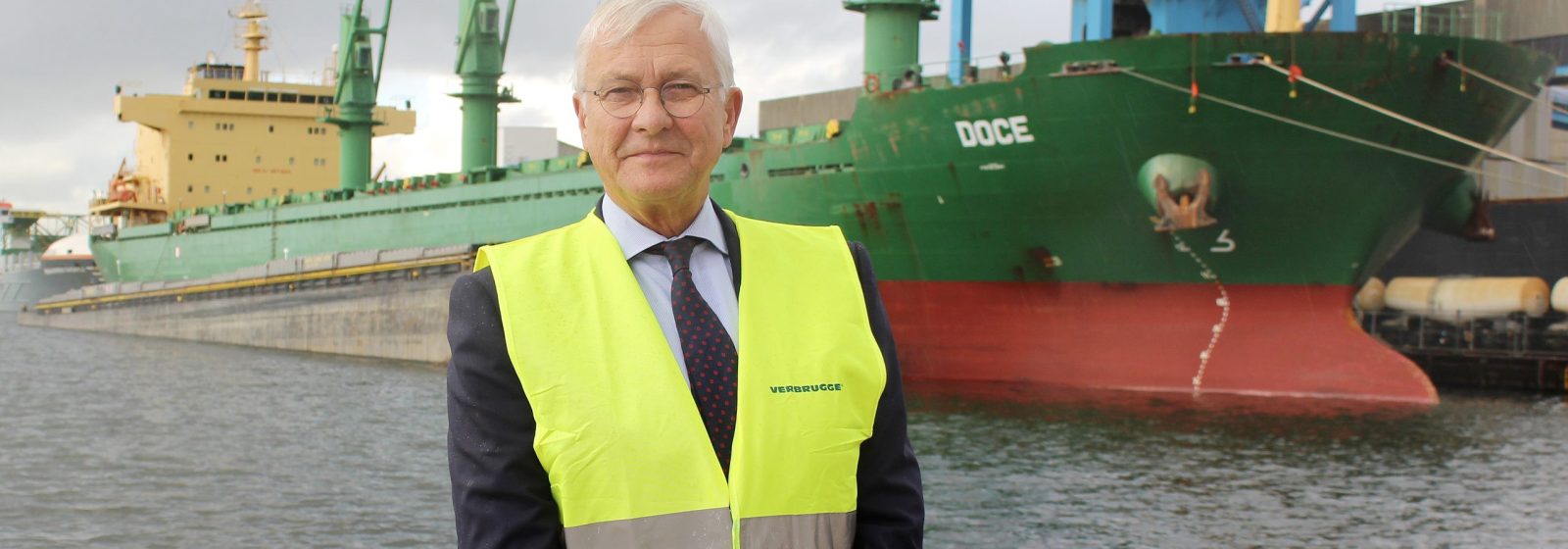
The November 2023 Flowsmagazine is dedicated to breakbulk. Among other things, you will find the contribution below about Verbrugge International, logistics service provider with three modern terminals in Vlissingen and Terneuzen and a major player in North Sea Port’s cargo handling. An interview with CEO Martin Verbrugge.
Examples of breakbulk include steel coils, steel plates, paper, wood, bridges, lock gates and project cargo for offshore. 15% of North Sea Port’s seaborne cargo throughput is breakbulk. This makes the cross-border port one of the most important players in Europe. ArcelorMittal integrates the entire steel production chain on one industrial estate along the Ghent-Terneuzen canal. The world’s largest newsprint machine operates at Stora Enso in Langerbrugge and North Sea Port is Europe’s number one for handling, storage and distribution of cellulose, a raw material for the production of paper, paints and glues. In Vlissingen, the wind farm industry is developing rapidly, from marine component transport to installation, maintenance and recycling.
Paper as top segment
At the hub of logistics, the Terneuzen Terminal, the Zeeland Terminal near Ritthem and Scaldia Terminal near Nieuwdorp, Verbrugge operates in a dynamic market. “Cellulose and paper are our top segments,” says CEO Martin Verbrugge. “There is contraction in finished products, as in the entire paper industry, raw materials, semi-finished products and packaging are stable. Steel is a cyclical market and will remain so. The wood sector is relatively small with us. We are also considering the tobacco sector, as we adhere to an investment code. The sustainable industry is being scaled up, including in cooperation with DEME Group and Jan de Nul (consortium TM EDISON, ed.) in the context of the future energy island near Zeebrugge.”
Temporary growth breakbulk
Verbrugge’s assets are also growing or stable. “We are investing heavily, totalling some 60 million euros between 2022 and 2024, in upgrading our terminals. The renewal of the container terminal in Vlissingen, for example, cost ten million. We also invest 15 million euros a year in maintenance. We saw in the corona period a disruption of container transport that led to temporary growth of the breakbulk segment, which is now recovering. Multimodality remains the anchor. We are also keeping our fleet of two hundred trucks and eight hundred trailers stable; road transport is where our roots lie. The rail sector is facing a capacity shortage because of lagging investments in infrastructure. The inland shipping sector will also continue to grow for this reason.”
Solar panels
The focal points in Verbrugge’s strategic policy are safety and energy transition, says the CEO. “On 29 September, we organised a successful safety day with all our employees, between six and seven hundred. This included customs, fire brigade and safe working specialists. Safety is obviously our main focus and that of our customers, but informing our employees should also be enjoyable. In terms of sustainability, we took a big step forward with 24 mW of solar panel capacity on our roofs. Of this, we use only 1 to 1.5 mW ourselves, in the context of electrification we can make important steps with this in the future.”
Martin Verbrugge expects no growth in overall transhipment in the coming years. “The breakbulk market is expected to remain stable. There is growth in container transport, as more and more products will be transported by container. We will continue to put maximum effort into sustainable modes.” The ground for this is gradually running out. “That is an area of concern for which a solution needs to be found with governments and developers, but of course we are fantastically located here on the Scheldemond.”

